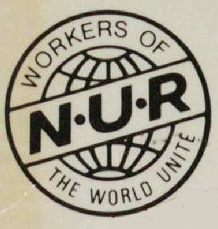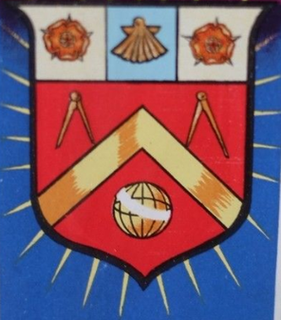In British politics, an affiliated trade union is one that is linked to the Labour Party. The party was created by the trade unions and socialist societies in 1900 as the Labour Representation Committee and the unions have retained close institutional links with it.

The Bakers, Food and Allied Workers' Union (BFAWU) is a trade union in the United Kingdom. Founded in 1847 in Manchester, it represents workers in the food industry.

The National Union of Railwaymen was a trade union of railway workers in the United Kingdom. The largest railway workers' union in the country, it was influential in the national trade union movement.
The Workers' Union was a general union based in the United Kingdom, but with some branches in other countries. During the 1910s, it was the largest general union in the UK, but it entered a rapid decline in the 1920s, and eventually became part of the Transport and General Workers' Union (TGWU).

The Iron and Steel Trades Confederation (ISTC) was a British trade union for metal-workers and allied groups, being the largest union in these fields. It was formed on 1 January 1917 as a merger of existing steel-workers' unions and it is now part of Community.

The Amalgamated Engineering Union (AEU) was a major British trade union. It merged with the Electrical, Electronic, Telecommunications and Plumbing Union to form the Amalgamated Engineering and Electrical Union in 1992.

The National Union of Agricultural and Allied Workers (NUAW) was a trade union in the United Kingdom which existed between 1906 and 1982. It represented farmworkers.

The National Society of Operative Printers and Assistants (NATSOPA) was a British trade union.

The Amalgamated Society of Woodworkers (ASW) was a British trade union representing carpenters, joiners and allied trades. The ASW was formed in 1921 by the amalgamation of two smaller unions. It was itself merged into the Union of Construction, Allied Trades and Technicians in 1971.

The Amalgamated Union of Building Trade Workers (AUBTW) was a British trade union.

The National Union of Boot and Shoe Operatives (NUBSO) was a trade union in the United Kingdom which existed between 1873 and 1971. It represented workers in the footwear industry.
Sir Joseph Hallsworth was a British trade union leader.
The United Textile Factory Workers' Association (UTFWA) was a trade union federation in Great Britain. It was active from 1889 until 1975.
The Amalgamated Society of Painters and Decorators (ASPD) was a trade union in the United Kingdom which existed between 1886 and 1970.
The National Amalgamated Union of Shop Assistants, Warehousemen and Clerks was a trade union representing retail workers in the United Kingdom.
Alfred W. Burrows was a British trade unionist.
This article lists the Labour Party's election results from the 1922 United Kingdom general election to 1929, including by-elections.
This article lists the Labour Party's election results from the 1929 United Kingdom general election until 1945, including by-elections.
This article is about the sponsorship of British Members of Parliament by mining trade unions.
Trade union sponsorship of UK Members of Parliament was a phenomenon whereby a union supported a member of the House of Commons with financial contributions.









